
The economic
threat that's kept many Americans on edge for months is nearing reality
- unless the White House and
repugicans cut a budget deal by New
Year's Day.
Huge tax increases. Deep cuts in domestic and defense
programs. The likelihood of sinking stock prices, reduced consumer
spending and corporate layoffs. The risk of a recession within months.
Still,
the start of 2013 may turn out to be far less bleak than feared. For
one thing, the two sides may strike a short-term agreement before New
Year's that postpones spending cuts until spring. President Barack Obama
and members of Congress return to Washington Thursday.
Even if
New Year's passed with no deal, businesses and consumers would not
likely panic as long as some agreement seemed imminent. The tax
increases and spending cuts could be retroactively repealed.
And
the impact of the tax increases would be felt only gradually. Most
people would receive slightly less money in each paycheck.
"The
simple conclusion that going off the cliff necessarily means a recession
next year is wrong," says Lewis Alexander, an economist at Nomura
Securities. "It will ultimately depend on how long the policies are in
place."
It's always possible that negotiations between President
Obama and repugican congressional leaders will collapse in acrimony.
The prospect of permanent tax increases and spending cuts could cause
many consumers and businesses to delay spending, hiring or expanding.
Without
any agreement at all for months, the fiscal cliff would cause the U.S.
economy to shrink 0.5 percent in the first half of 2013 and fall into
recession, the Congressional Budget Office estimates.
But most
economists expect a deal, if not by New Year's then soon after.
Businesses and consumers will likely remain calm as long as negotiators
seem to be moving toward an agreement.
"The atmosphere is more
important than whether the talks spill" into next year, said Paul
Ashworth, an economist at Capital Economics.
Here's why many are optimistic that a brief fall over the cliff wouldn't derail the economic recovery:
-
Though the fiscal cliff would cost the economy an estimated $671
billion for all of 2013, the tax hit for most people would be slight at
first. The expiration of Social Security and income tax cuts would be
spread throughout 2013. For taxpayers with incomes of $40,000 to
$65,000, paychecks would shrink an average of about $1,500 next year but
an average of just $130 in January, according to the nonpartisan Tax
Policy Center.
- About a third of the tax increases wouldn't
touch most Americans. Some would hit businesses. Others, such as higher
taxes on investment income and estates, and the expiration of
middle-income tax credits, wouldn't come due until Americans filed their
2013 taxes in 2014.
- The Internal Revenue Service has delayed
any increases in tax withholding that would otherwise kick in. Without a
deal, the top income tax rate for single people with taxable income
between about $36,000 and $88,000 would rise from 25 percent to 28
percent. But that won't start to reduce Americans' paychecks in early
January, even if no deal is reached by then.
- About $85 billion
in spending cuts to defense and domestic programs would take weeks or
longer to take effect. That means government agencies wouldn't cut jobs
right away.
If a short-term agreement is struck, some taxes would
probably still go up. These would include a 2 percentage point cut in
Social Security taxes that's been in place for two years. Its expiration
would cost the typical household about $1,000. With income gains
sluggish, that could dampen consumer spending.
A temporary deal that delays some hard decisions could reduce business and consumer confidence. It would also mean:
-
Extended unemployment benefits would end for 2 million people. The
federal government's program pays for about 32 weeks of extra benefits,
on average, on top of the 26 weeks most states provide. Weekly
unemployment checks average about $320 nationwide.
- The stock
market would probably drop, though maybe not by much. Many Wall Street
analysts expect a partial deal of some kind. "There is starting to
become a little bit of an acceptance that we fall off the fiscal cliff,"
said J.J. Kinahan, a strategist for TD Ameritrade.
- The
expiration of the Social Security tax cut and the end of emergency
unemployment benefits would likely shave 0.7 percentage point off
economic growth next year, the CBO estimates. The economy is now growing
at about a 2 percent annual pace.
If no deal at all was reached
by January and budget talks dragged on, many businesses might put off
investment or hiring. That's why most economists say it would be crucial
to reach a deal within roughly the first two months of 2013.
Higher
taxes would hit poorer people particularly hard. That's partly because
many tax cuts and credits aimed at lower-income households would end.
Even modest tax increases take a bigger toll on those with less income
to begin with. For a married couple with an income between $20,000 and
$30,000, taxes would rise $1,423 next year, according to the Tax Policy
Center.
In addition, many more people would be affected if something called the alternative minimum tax isn't fixed.
The
financially painful AMT was designed to prevent rich people from
exploiting loopholes and deductions to avoid any income tax. But the AMT
wasn't indexed for inflation, so it has increasingly threatened
middle-income taxpayers. Congress has acted each year for a decade to
prevent the AMT from hitting many more people.
If it isn't fixed
again, roughly 33 million taxpayers, including married couples with
income as low as $45,000 - down from $74,450 in 2011- could face the
AMT. Previously, only 5 million taxpayers had to pay it. Taxpayers
subject to the AMT must calculate their tax under both the regular
system and the AMT and pay the larger amount.
The IRS has said it
assumes Congress and the White House will fix the AMT in a deal to
avoid the cliff. If they don't, the IRS will need weeks to reprogram
computers and make other adjustments. In the meantime, about 100 million
taxpayers couldn't file tax returns early next year because they
couldn't determine whether they owe the AMT. Refunds would be delayed.
The gravest scenario would be if the budget talks collapsed and the tax increases and spending cuts appeared to be permanent.
In
that case, Macroeconomic Advisors warns that the Dow could plunge up to
2,000 points within days. Businesses would turn gloomier in
anticipation of Americans paying higher taxes and spending less.
The
economy would shrink at an annual rate of 0.6 percent in the first
three months of 2013, estimates Joel Prakken, an economist at
Macroeconomic Advisors. That compares with an estimated 1.9 percent
growth rate if a deal is reached. CBO forecasts that the unemployment
rate would rise to 9.1 percent from the current 7.7 percent.
Last
week, Obama and House Speaker John Boehner narrowed their differences
on income tax increases and spending cuts. But with the two sides
deadlocked, Boehner scheduled a vote on a bill to prevent taxes from
rising on those earning less than $1 million a year. Opposition from
anti-tax conservatives, and Democrats, forced him to cancel the vote.
The gridlock caused stocks to fall Friday. The Dow Jones industrial average dropped 121 points.
Obama
called for a vote on a stripped-down agreement that would raise taxes
only on the wealthiest 2 percent of Americans and extend emergency
unemployment benefits. Automatic spending cuts would be postponed.
Whatever
the outcome, some trends could offset part of the economic damage. The
average retail price for gasoline has dropped 15 percent this fall, for
example. Lower gas prices give consumers more money to spend elsewhere.
And
if the crisis is resolved, as many expect, the boost to business and
consumer confidence would encourage more hiring and spending.
"We
could end up with a much more robust recovery than anybody's
envisioned" if a deal is reached, said David Cote, CEO of Honeywell
International.
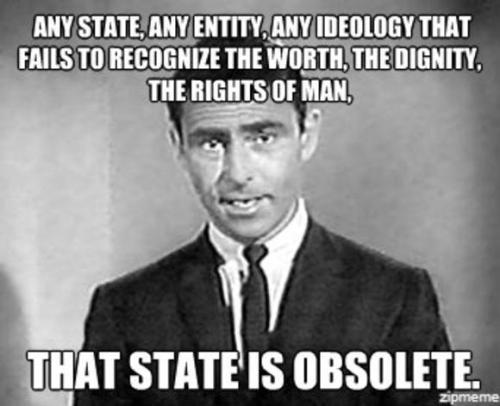




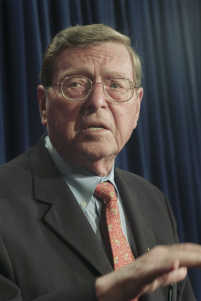




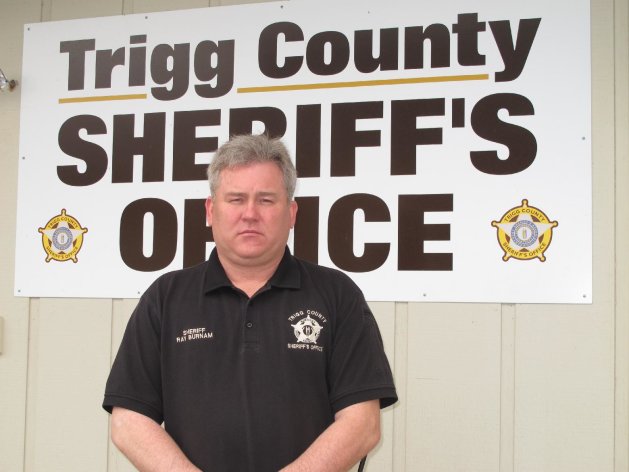

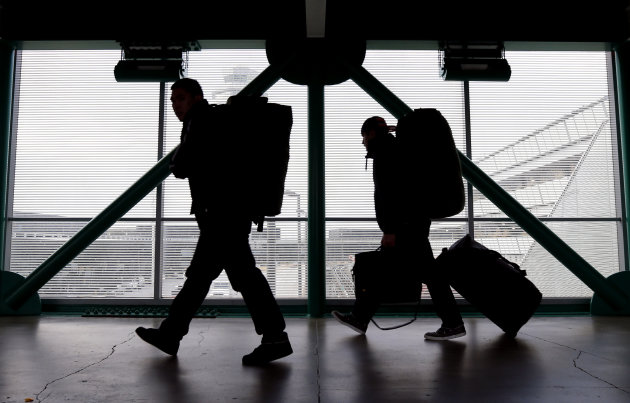



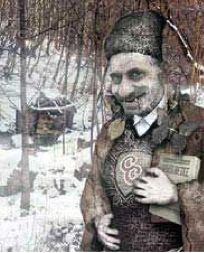 Last month, we posted a story
about the Serbian village of Zarožje, when town officials issued a
warning about a vampire that may have been disturbed. To get the lowdown
on such superstitions, National Geographic News talked to Mark Collins
Jenkins, author of the book Vampire Forensics, and forensic archeologist and anthropologist Matteo Borrini.
Last month, we posted a story
about the Serbian village of Zarožje, when town officials issued a
warning about a vampire that may have been disturbed. To get the lowdown
on such superstitions, National Geographic News talked to Mark Collins
Jenkins, author of the book Vampire Forensics, and forensic archeologist and anthropologist Matteo Borrini.


